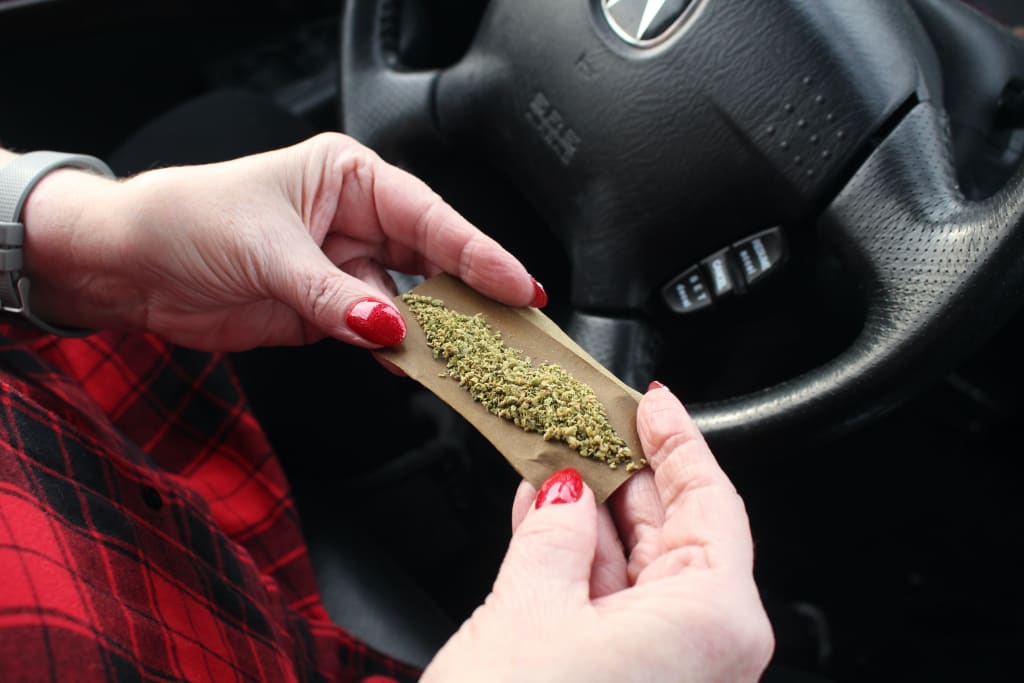Cannabis field sobriety tests not always accurate, study shows
Police falsely determine half of people not under the influence of cannabis are impaired

As the legalization of marijuana sweeps the nation, driving high has become an issue, especially in Colorado, the birthplace of the U.S. marijuana movement.
While responsible cannabis users don’t drive when they feel impaired, others drive high not realizing the risks. Policing stoned drivers isn’t easy. There is no field Breathalyzer test that conclusively determines whether someone is impaired, like there is for alcohol.
In Colorado, officers are trained on how to use field sobriety tests, or FSTs, to determine impairment. But a study published Monday in JAMA Psychiatry showed such tests aren’t always accurate.
The Center for Medical Cannabis Research at the University of California, San Diego conducted the study. Of 184 participants, 64 were assigned to a placebo group. Police determined half of them to be under the influence. They used the Walk and Turn, or WAT test, and the One Leg Stand, or OLS test.
“This randomized clinical trial found that FSTs administered by highly trained law enforcement officers differentiated between individuals receiving THC vs. placebo and that driving abilities were associated with results of some FSTs,” the authors concluded. “However, participants receiving placebo had a high rate of inadequate performance of FSTs, and officers frequently suspected poor FST performance to be due to THC-related impairment.”
Field sobriety tests challenged in court
In other words, police appeared to approach most all field sobriety tests assuming a person was high. It’s likely field sobriety tests will be challenged in court based on the findings of this study, according to an accompanying editorial published in JAMA Psychiatry. “There have been recent attempts to design tests for impairment from THC, including applications to measure cognition, assessments of postural instability using electronic devices, pupillary responses to flashes of light, or brain-based measures, as well as in-car driver-monitoring systems. All of these investigations are preliminary and no valid screening paradigm that is validated against a reliable measure of impaired driving is yet available. This leaves us with the confronting reality that current legislators can only choose between tests for detecting (recent) cannabis exposure, behavioral tests whose results inaccurately predict driving impairment, or a combination of both, even though their indication of cannabis impairment is scientifically unjustified and will be, understandably, legally challenged.”
The authors of the study said driving impaired is a serious problem, and police need ways to enforce it. “Road safety is a critical issue in an era of increasing cannabis legalization. This requires a comprehensive effort, including public information and prevention efforts to keep impaired drivers off the road. Once they are on the road, law enforcement plays a critical role in removing impaired drivers. The findings of this study suggest that FSTs are useful adjuncts but do not provide strong objective evidence of THC-specific impairment and additional efforts to validate existing methods and provide law enforcement with new, effective tools for identifying impairment are needed.”
Sway, balance affected by cannabis, authors conclude
The study did lend some credibility toward field sobriety tests, but disproved myths such as smoking marijuana dilates a person’s pupils. “Although cannabis is cited as affecting cognition more than motor skills, we found sway and balance to be sensitive to use,” the authors concluded. “We found no differences in pupil sizes, suggesting that increased pupil size is not a universal indicator of exposure. Because participants who received THC estimated time more accurately than the placebo group, our data do not support this as an indicator of exposure.”
Driving high illegal in Colorado
Driving under the influence of cannabis is illegal in Colorado, and the state has officers trained specifically on how to spot it. “Colorado law enforcement officers are trained in the detection of impairment of alcohol and drugs, and many are specially trained Drug Recognition Experts (DRE),” the state’s cannabis impairment website reports. “These officers have the ability to detect physical and psychophysical signs of drug impairment. DREs are viewed as one of the most effective law enforcement tools in efforts to reduce drugged driving. There are currently 226 active DREs representing 79 law enforcement agencies across the state, including 62 with the Colorado State Patrol.”
Colorado requires people arrested on suspicion of driving high to submit to a chemical test, too. Fines range from $250 to $1,500, according to the state website, but total costs associated with impaired driving can exceed $13,000, the website reports.
Chemical tests not always accurate either, authors report
In an accompanying editorial in JAMA Psychiatry, the authors explained why chemical tests aren’t always accurate either. “Cannabis use among drivers is determined by identifying THC in biological matrices, such as blood and oral fluid. However, the association between individual THC concentrations in biological fluids and cannabis-induced impairment is low because THC concentrations can reflect past use of cannabis when actual impairment has already faded. An analogy would be if breath tests for alcohol detected any alcohol consumed in the past week, or even month, and thus counted those who drank alcohol and then drove a car several days later but who were sober at the time of a crash.”
About the Creator
David Heitz
I am a journalist with more than 30 years' experience. Here at Vocal, I write mainly for Potent, Vocal's cannabis magazine. I have a PTSD diagnosis and a medical cannabis card. I have lived in a penthouse and also experienced homelessness.






Comments
There are no comments for this story
Be the first to respond and start the conversation.